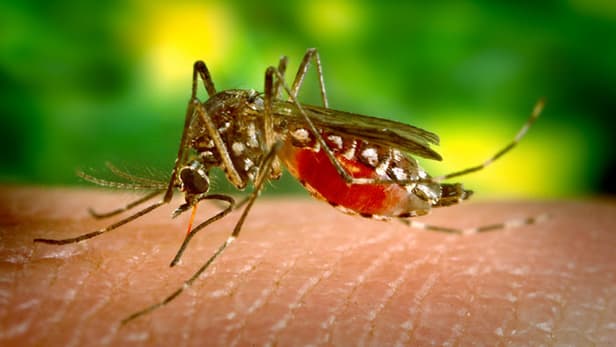US approves trial of Zika-fighting engineered mosquitoes

Genetics researchers have targeted the Aedes aegypti mosquito in a number of ways (Credit: jentavery/Creative Commons)
With the number of Zika infections on the rise and real concerns of the virus spreading, governments are on the lookout for inventive ways to ramp up the response. These have included trials of experimental vaccines, trapping the bugs in junked tires and perhaps the most radical of all, using genetic engineering to kill off local mosquito populations. This strategy is beginning to gather some steam in the US, with federal regulators approving a field trial that would let engineered mosquitoes go to work in the state of Florida.
Humans have toyed with the idea of using genetic engineering to put the brakes on mosquito populations for years. These little critters are after all the single biggest threat to human life, spreading malaria, dengue and yellow fever to cause several million deaths each year and infect many millions more.
One of the main culprits behind this unmatched death toll is the Aedes aegypti, a mosquito found in tropical and subtropical regions that is the number one disease vector for dengue fever. Genetics researchers have targeted this innocuous killer through a number of approaches, looking to alter genes in ways that cause offspring to be born without wings, kill off their sense of smell and consign females to their birthplace for the entirety of their consequently shortened lives.
British company Oxitech has been a very active player in this field. In 2009 it released a bunch of its genetically modified mosquitoes on the Grand Cayman island in the Carribbean, killing off 80 percent of the local A. aegypti population. It has also conducted trials in Brazil and Panama, and has now been given the nod by the US Food and Drug Administration (FDA) to let its bug killers loose in Key Haven, Monroe Country, Florida.
Oxitech has engineered male mosquitoes, which don't bite humans or spread diseases, to possess a certain self-limiting gene. When these mosquitoes are released, they mate with wild female Aedes aegypti and this gene is passed along to the offspring. The gene is fatal for the babies and prevents them ever reaching adulthood.
Back in March, the FDA released a draft environmental assessment pertaining to the potential consequences of trialling Oxitech's mosquitoes in Key Haven. It has since received thousands of public comments and now published a final assessment, which concludes that the proposed field trial will have no "significant impacts on the environment."
While winning federal approval is an important step, it doesn't clear they way for Oxitech's mosquitoes to be used willy-nilly. They will still need to be approved by the Florida Keys Mosquito Control District, which is waiting on a referendum where locals will vote on whether releasing the genetically modified mosquitoes is really a good idea. This is set to take place in November, so we'll know more about a time-frame for the field trial if and when this final hurdle can be overcome.